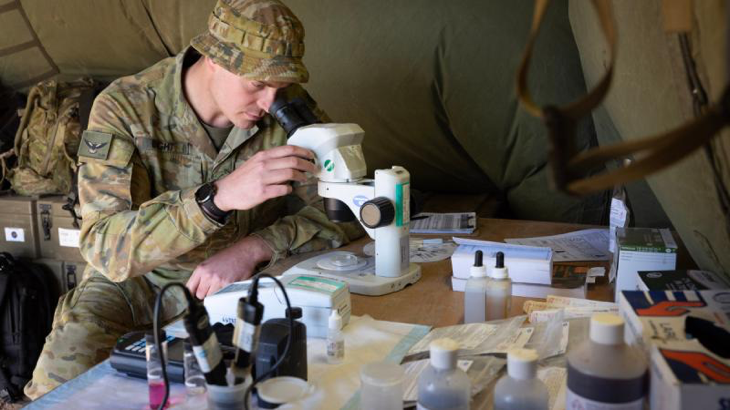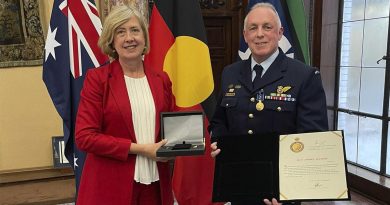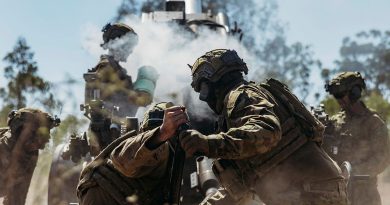Health officers play a crucial role

Sometimes feared and often misunderstood, environmental health officers (EHO) work to reduce gastrointestinal illnesses, vector-borne diseases and other non-combat-related injuries.
CAPTION: Army environmental health officer Lieutenant Joel Bright, of the 3rd Health Battalion, at his field laboratory during Exercise Rhino Run at Cultana Training Area, South Australia. Story and photo by Sergeant Matthew Bickerton.
When EHO Lieutenant Joel Bright from 3rd Health Batallion (3HB) visits a field kitchen for inspection he said people get nervous.
“We try not to scare them. Part of the job is dispelling some of those myths that we’re ‘there to get them in trouble’. We’re there to help,” he said.
Another misconception about his role is that EHOs are concerned with trees and wildlife, rather than the health and wellbeing of soldiers.
EHOs will advise commanders on issues from food safety and water quality to disease control and waste.
For example, one challenge with battlefield surgery is disposal of biohazardous waste, such as amputated limbs.
An EHO solution was to bury the remains with a layer of rubbish to deter anyone from digging them up, reducing the risk of exposure.
In 3HB they work with medical officers to find environmental risks in barracks, on exercise and operations.
Simple solutions often mitigate the risks, but Lieutenant Bright said it required diligence from everyone.
During an exercise, he witnessed a portable toilet being quarantined for individuals with gastro. However, someone removed the sign to use the unoccupied toilet, leading to others using it and contracting gastro.
“We can all become complacent, but something like that can bring an exercise – or an entire operation, for that matter – to a halt,” Lieutenant Bright said.
“Staying on top of small things can prevent huge consequences.”
Lieutenant Bright, a part-time officer who works full-time in environmental health for local government in Adelaide, holds a science degree and completed postgraduate work to qualify for his role.
He appreciates the flexibility part-time employment has in choosing when to work and the opportunities to share knowledge from his civilian job.
.
.

.
.





